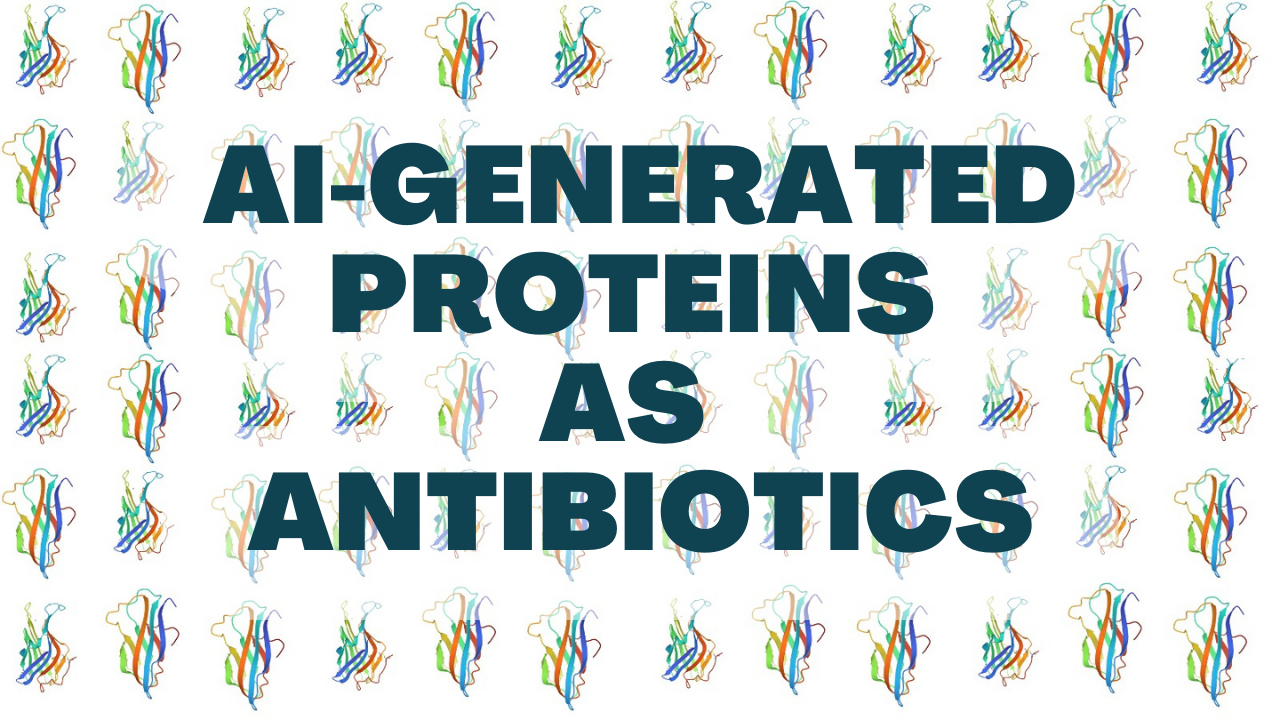- By - Gaurav Masand
- Posted on
- Posted in AI, Research
AI-Generated Proteins As Potent Antibiotics
Introduction
The field of artificial intelligence (AI) has made groundbreaking advancements in various industries, and healthcare is no exception. One notable example is the use of large language models (LLMs) like ProGen, which has been trained on vast amounts of text data to analyze and generate language specific to proteins. This innovative technology has led to the design of new proteins with the potential to revolutionize antibiotics and combat bacterial infections in a whole new way. In this blog, we will delve into the fascinating world of AI-generated proteins and their promising implications for the future of healthcare.
AI-Generated Proteins:
Proteins are essential molecules that play a crucial role in the functioning of living organisms. They are responsible for various biological processes, including cellular communication, enzyme catalysis, and immune response. Traditional methods of designing proteins involve experimental trial and error, which can be time-consuming and costly. However, with the advent of AI and LLMs like ProGen, scientists can now design proteins with unprecedented precision and speed.
ProGen, similar to ChatGPT and trained on 280 million proteins, utilizes deep learning algorithms trained on vast datasets containing information about proteins and their interactions. By leveraging this knowledge, ProGen can generate novel proteins with specific functions, such as targeting and destroying harmful bacteria. This has opened up new possibilities for developing antibiotics with enhanced effectiveness against antibiotic-resistant bacteria, which pose a significant threat to public health.
Fighting Antibiotic Resistance:
Antibiotic resistance has emerged as a global health crisis, with many bacteria evolving to withstand the effects of conventional antibiotics. This has led to the urgent need for novel approaches to combat bacterial infections. AI-generated proteins offer a promising solution to this problem.
ProGen has been used to design proteins that can selectively target and kill bacteria, including the notorious Escherichia coli (E. coli) bacteria, in the laboratory setting [1]. The research team tasked ProGen with generating sequences associated with lysozymes, a type of antimicrobial protein. Lysozymes are small proteins that act as the earliest known antibiotics by targeting the cell walls of bacteria, and they are naturally produced by various animals, including humans. These proteins can be found in bodily fluids such as blood, tears, mucus, and even in hen eggs.
ProGen utilized its immense computational power to generate a staggering one million distinct artificial protein sequences. From this extensive pool, the researchers selected a subset of 100 sequences to be synthesized in the laboratory for further analysis and xperimentation. Afterwards, the research team handpicked five of the newly generated antimicrobial proteins and conducted tests against E. coli bacteria. Astonishingly, two of these novel proteins demonstrated the ability to effectively eliminate the bacteria. Further analysis through X-ray imaging revealed that despite their amino acid sequences differing by more than 30% from any known natural proteins, these AI-generated antimicrobial proteins still folded into three-dimensional structures that closely resembled their naturally occurring counterparts. This finding highlights the remarkable capability of AI to design functional proteins with unique sequences and structures, opening up new possibilities for the development of next-generation antibiotics.
These proteins have shown remarkable efficacy in killing bacteria that are resistant to traditional antibiotics. By precisely tailoring the proteins’ properties, such as their structure and charge, scientists can optimize their ability to penetrate bacterial cell walls and disrupt essential cellular processes, ultimately leading to bacterial death.
The potential of AI-generated proteins in fighting antibiotic resistance goes beyond their ability to kill bacteria. These proteins can also be engineered to inhibit the formation of bacterial biofilms, which are protective structures that bacteria use to evade the immune system and resist antibiotics. By disrupting biofilm formation, AI-generated proteins can enhance the effectiveness of antibiotics and prevent the development of antibiotic resistance.
Future Implications:
The advancements in AI-generated proteins have far-reaching implications for the future of healthcare. With further research and development, these proteins could potentially revolutionize the field of antibiotics and transform the way bacterial infections are treated.
One of the most significant advantages of AI-generated proteins is their ability to be customized for specific bacteria. This means that antibiotics can be designed to target a wide range of bacteria, including those that are resistant to conventional antibiotics. This could significantly expand the arsenal of antibiotics available to clinicians and improve patient outcomes, particularly for infections caused by multidrug-resistant bacteria.
Moreover, the speed at which AI-generated proteins can be designed and tested is a significant advantage over traditional methods. Traditional drug discovery and development can take years, if not decades, to yield viable results. In contrast, AI-generated proteins can be rapidly designed and optimized using computational methods, significantly reducing the time and cost associated with drug development.



